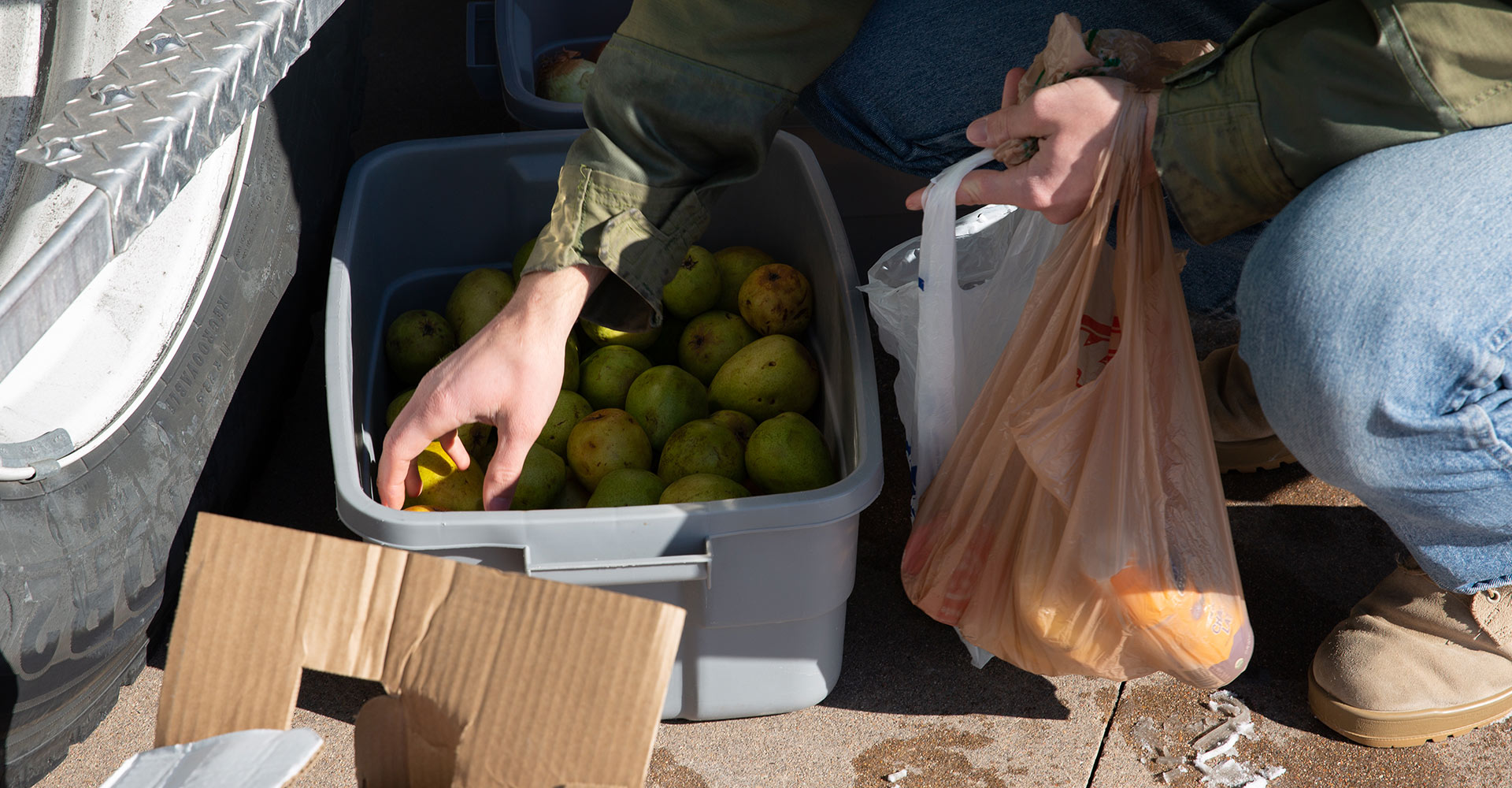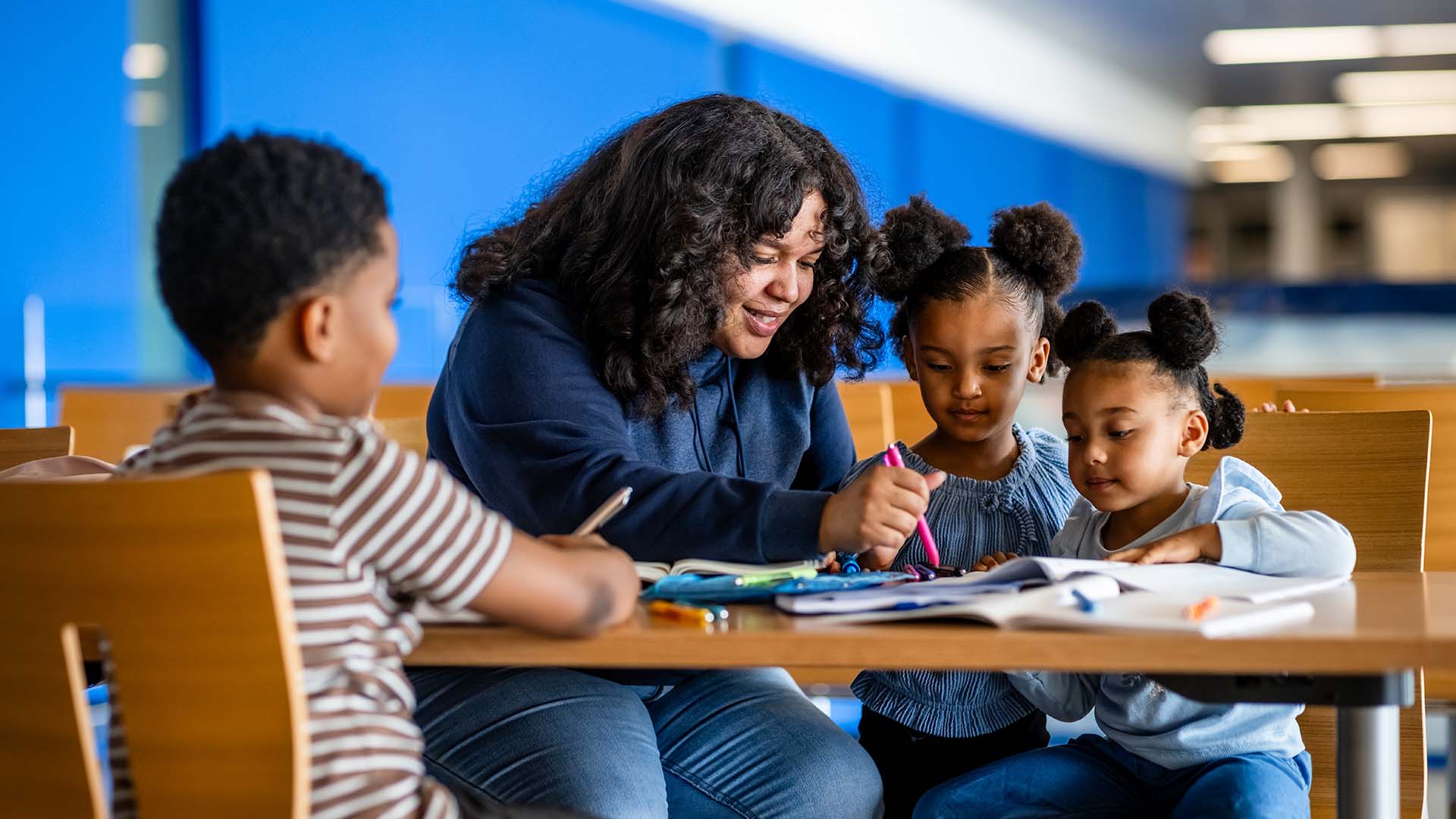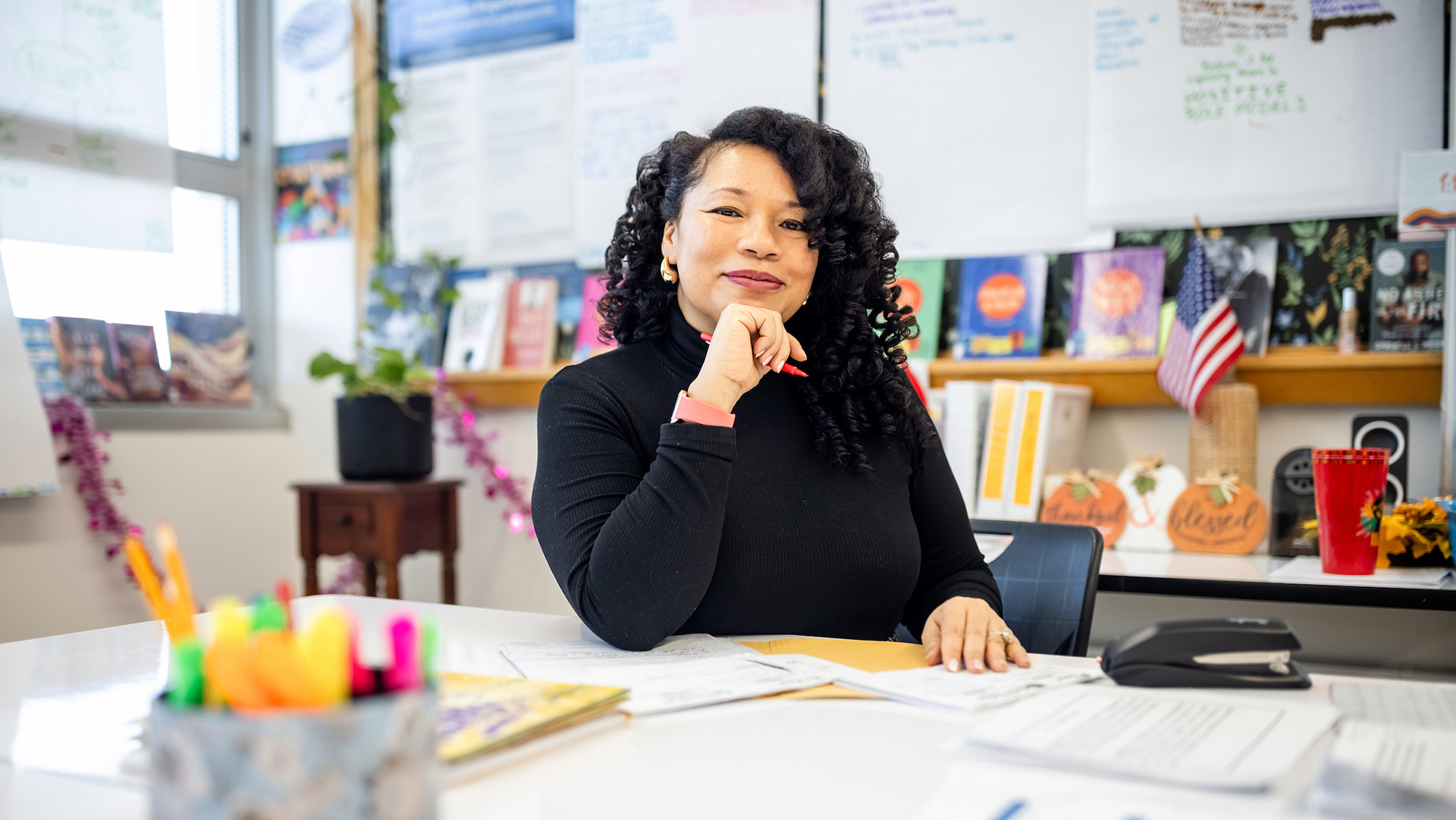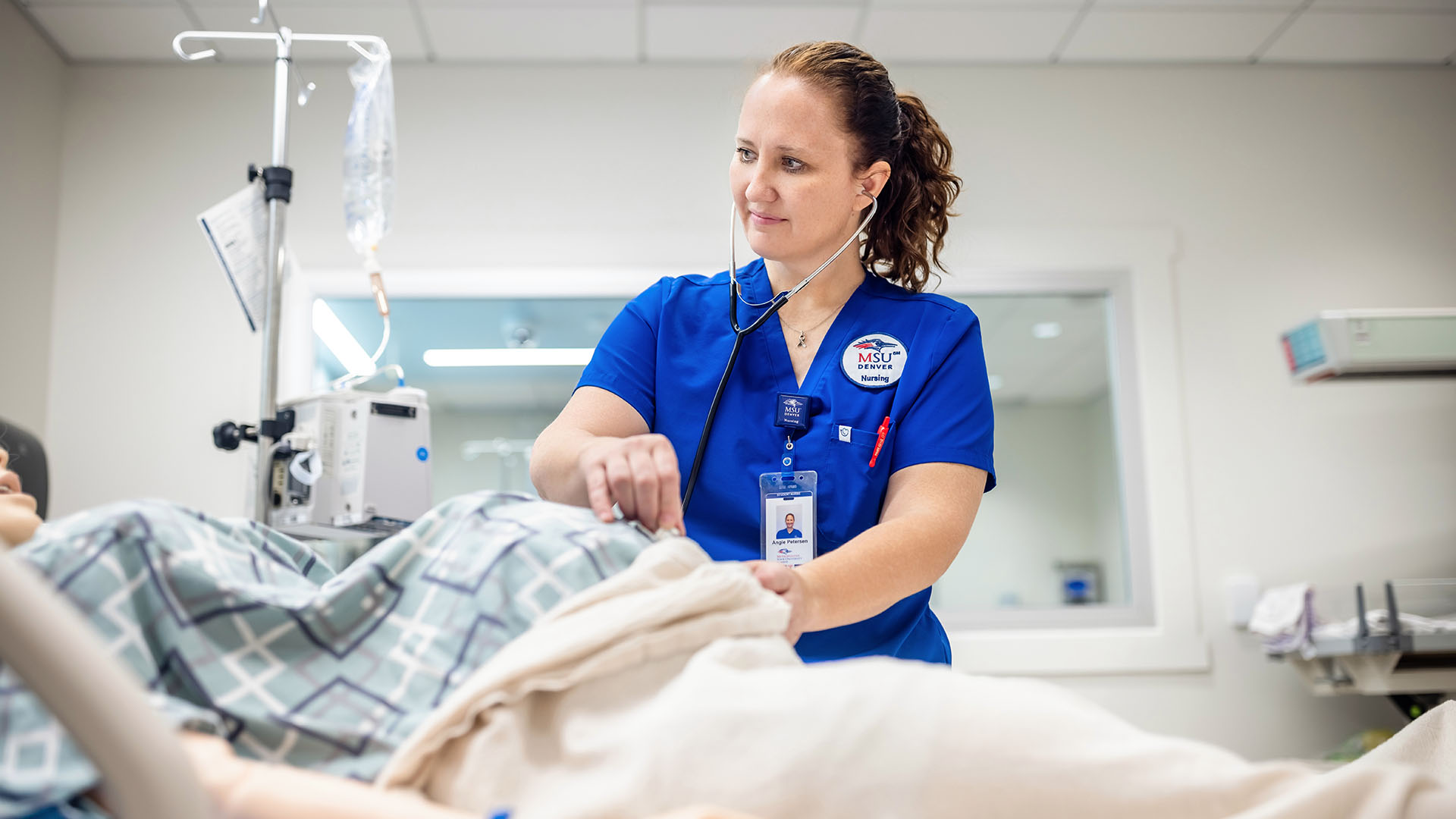Securing support for students
As MSU Denver goes digital, the University is assisting vulnerable students through efforts that include emergency funding for food and housing insecurity.

Even before the global COVID-19 pandemic, Metropolitan State University of Denver students were delicately balancing employment and academics.
Roadrunners’ median age is 26, and 77% of students work full- or part-time, often at multiple jobs and many in the service industries hit hardest by the COVID-19 outbreak. Add in responsibilities that often involve caring for elderly relatives, siblings and children, and the challenges become exponentially greater.
These lived realities require a new kind of thinking and responsiveness as colleges and universities nationwide mobilize their campus communities to move online. And amid the COVID-19 public-health crisis, the question emerges: How are colleges helping their most vulnerable populations?
“First things first, our top concerns are for the health and safety of our community and the academic success of our students,” said Will Simpkins, Ed.D., vice president of Student and Academic Affairs at Metropolitan State University of Denver. “That guides all of our decisions.”
Basic-needs support
For many college students, unmet basic needs such as food and shelter – or more often than not, both – are foundational concerns. After all, it’s hard to study if you can’t eat or don’t have a reliable home to shelter in.
As reported in the #RealCollege 2020 survey report, published by the Hope Center for College, Community and Justice at Temple University, 39% of respondents were food-insecure in the prior 30 days, while 46% of respondents were housing-insecure in at some point in 2019, with 17% experiencing homelessness. These numbers were even greater for MSU Denver students, with 70% of the 871 respondents reporting some form of basic-needs insecurity in 2018 (the most recent localized data).
That was before the coronavirus pandemic hit.
“For many, it was already hard work navigating these systems, and this crisis is hitting them even harder,” said Sam Borrego, M.S., coordinator for first-generation initiatives in MSU Denver’s Center for Equity and Student Achievement. “We’re working with them to anticipate issues before they become issues.”
She’s directly working with students who are the first in their families to go to college, noting that about half of MSU Denver’s first-gen students are also low-income, struggling to deal with the ripple effects of layoffs and downsizing.
One of the key resources for front-line support professionals like Borrego is the Student Emergency Fund. Run out of the Student Care Center and supported by the University Foundation, it allows students to apply online for immediate resources to help with housing and food – and also access to technology to continue their studies online with as much semblance of normalcy as possible.
The impact of such a deployable resource as the emergency fund can’t be overstated for students and their families. Fortunately, the community also shows up when the chips are down – which is why the University’s recent annual Day of Giving (D.O.G.) used a canine-themed campaign to blast past its goal of $90,000, raising more than $150,000 for the school, of which almost $90,000 went directly into emergency-fund coffers.
“These are unprecedented times, and our Roadrunner family continues to come together for our students,” said Bre Milnes, director of annual giving at MSU Denver, “The support they’ve shown – and continue to show throughout this critical time – is amazing.”
The University is also providing resources (including how-to guides and loaner laptops) to students through the Instructional Technology Services Online Ready portal and announced it will continue to pay hourly staff and student workers for the time they had been scheduled to work for the remainder of the spring semester.
Another key assurance from University leaders includes the commitment to previously existing on-the-ground services.
“Our student support resources are still there – they’re just there in a different way,” said Braelin Pantel, Ph.D., Associate Vice President for Student Engagement & Wellness/Dean of Students at MSU Denver. “We’re all here, ready to help our students – the question we’re figuring out now is ‘how?'”
Staying engaged online
As the University shifts all course instruction online by Monday, fast-moving, grassroots connection to resources is key to ensure that students have the most applicable tools to succeed, whether that’s centralized and broad or individual and one-on-one.
Though each situation is unique to the individual, common challenges faced by Borrego’s students are unreliable internet connections, family to care for and loud environments not suited for studying.
“Many folks didn’t choose to study online,” she said. “Now, they’re asking, ‘How do I do this?’
“It’s important to remember not everyone has the ability to just hop on a video call.”
Extending support to students goes beyond access to laptops and smartphone course-content compatibility – it’s ensuring they’re equipped to stay engaged as a connected community. For Borrego, that has meant creating engagement resources to walk folks through working online and phone-based study groups so they don’t have to go it alone. And retrofitting upcoming workshops on graduate school and personal finance to proceed virtually instead of in person.
Above all, though, Borrego stressed the importance of remembering that the one-size-fits-all approach to “traditional” resource delivery is out the window when it comes to the complex realities today’s college students navigate.
“In addition to thinking about their academic selves, our students are parents, who now have to become teachers; they’re waitstaff and fast-food workers who don’t have the luxuries many others take for granted,” she said.
A position of strength
That delicate balancing act is undeniably challenging, but one approach to support is doing away with deficit thinking and seeing them as strengths. Such thinking helps Roadrunners tap into one of their greatest assets: fortitude.
“We know our students have this strength in resiliency,” said Ally Garcia, Ed.D., assistant dean and director of TRIO Student Support Services at MSU Denver, a federally funded grant program to help students from disadvantaged backgrounds. “Now more than ever is our duty to remind them that they have this kind of capital and that they prove it every day of their lives.”
This relentless tenacity is a hallmark of the Roadrunner community and one that positions its members as flexible and savvy, built to weather something as massive as mobilization to a whole new world of work and school.
In addition to critical-need services through areas such as the Student Emergency Fund, Garcia highlighted the importance of outreach efforts including mailed greeting cards, along with virtual events such as games and Netflix parties to help stay connected.
“Our students are experts at riding the waves,” Garcia said. “They have endurance; they’re conditioned. They know what it’s like to juggle things and how to navigate the systems – they’ve been through tough times before.”
Simpkins echoed this sentiment, noting how students are experts in their own learning and that it requires a community-informed approach to deliver the right resources to the right places at the right time. Done effectively, the results can multiply.
“Higher education is a tightly woven tapestry of opportunities,” he added. “As we pull one, the ripple effect throughout is dramatic. We’ll continue to respond to our new normal and the questions that arise.”
Those opportunities are what keep front-line professionals such as Borrego and Garcia focused on delivering holistic support to as many students as possible during difficult times – and appreciative of the silver linings that appear.
“Before (the COVID-19 pandemic), we had so much filling our lives, we didn’t really have a way to process trauma and happiness,” Garcia said. “Now, this is giving people time to reflect – that can be very healing for people and places in and of itself.”
She noted the coexisting practices of risk-taking and trust-building needed to navigate the new terrain and credited the freedom she has to lead her team as one of the greatest assets to adapt where needed.
“A lot of people don’t have that, and I’m grateful to work at a place that really wants folks to do what’s best for the students in the end,” she said.
“I think that’s going to be the secret sauce that gets us all through this.”
Between March 13 – 26, the MSU Denver Student Emergency Fund received 133 applications, totaling more than $83,000 in requests to help with food, housing and technology – all as hardships continue to grow with each passing day.
If you are able to support a student, please make your gift here. Every gift, at any amount, is critical to helping a Roadrunner in need.
If you would like to send words of encouragement to our students experiencing tough times, please send your video or message to Katie Mnichowicz at [email protected].






